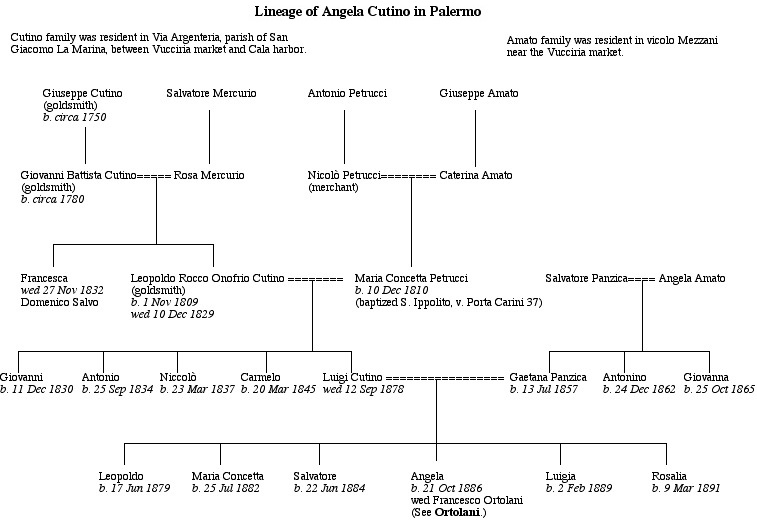
Based in Sicily, the Sicilian Medieval Research Institute conducts original research "on site" in Sicily for scholars, institutions and governments. Research is also conducted in the area of medieval or modern family history (Sicilian genealogy). Unlike most firms and individuals working in this unregulated field, ours is managed under the direction of actual, published historians. One of our directors literally wrote the (first) book on Sicilian genealogical research – so original that it established a new subject category in the Dewey catalogue; he also wrote the only book on the entire history of the Kingdom of Sicily, where your Sicilian ancestors lived. Yes, we take Sicilian history, and your family history, very seriously.
If you're reading this, you probably don't need us to spark your interest in genealogy. We'll presume that you've already read something about Sicilian family history (Best of Sicily has a few infomative pages on the topic), or at least Italian genealogy generally, so we'll spare you a lengthy narrative here. Without wasting your time, let's get right to the point.
 What we do:
What we do:
• Discover ancestral information insofar as available records permit.
• Accurately interpret/evaluate these records.
• Adhere to a high proof standard.
• Provide supporting documentation (scans or certificates) whenever possible.
• Offer guided visits to ancestral towns in Sicily.
• Compose original, traditional pedigree charts (an example follows).
What we do NOT do:
• Research for titles of nobility or coats of arms as the chief purpose of a project.
• Research for Jewish ancestors unless a line to 1500 has already been established.
• Research "forward" from a certain date (e.g. from 1600 to the present).
• Search for, and/or contact, living relatives (such as cousins) in Italy.
• Analysis of genetic (DNA) ancestry profiles based on haplotyping.
• Reviews/corrections of research already conducted by other genealogists.
• Continuation of research already begun by other professional genealogists.
• Research whose main purpose is to find ancestral land or property.
• Research for records after 1905 (Italy's privacy laws prohibit this).
• Offer free research advice to anybody but our clients. (Buy the book.)
• Research in adoption records.
What we guarantee:
• A realistic assessment of the chance of success before we accept your project.
• Discovery of familial information where it exists in records available publicly.
• Confidentiality. We will not tell third parties that you are our client.
• Privacy. We will never share you family history research with anybody.
• Security. We will never upload your ancestral information to a database.
• Correct reading and analysis of records.
What it costs:
Costs vary depending on the research and travel time involved. The standard
rate is 350 euros (about US$390) per 7-hour day, and there is no guarantee that a certain
amount of information (for example, 5 generations of patrilineal ancestry)
can be discovered during one day. The minimum fee (paid as a deposit) is
350 euros, and this is normally sufficient to trace a modern line from circa
1890 to circa 1780 (typically 4 or 5 generations) in a single locality if it so
happens that the family being researched resided there for a number of generations. An example of such a lineage follows.
Research for periods earlier than circa 1780 usually requires more time, and access
to parish archives. No reputable genealogist charges a client based exclusively on
the number of generations discovered. Expect each phase of your project to
take at least 90 days (three months), and obtaining supporting documents to take twice that long.
Read the book (even before contacting us) because it describes far more about this field and our research methods than we could ever present on a website, and because the best client is a well-informed client. We recommend that you read Sicilian Genealogy and Heraldry (it's available in many major public libraries) before hiring any researcher, even if it isn't us.
EMAIL US to begin.
Traditional pedigree (first phase of research):

Scanned document (act of baptism, 1804):
